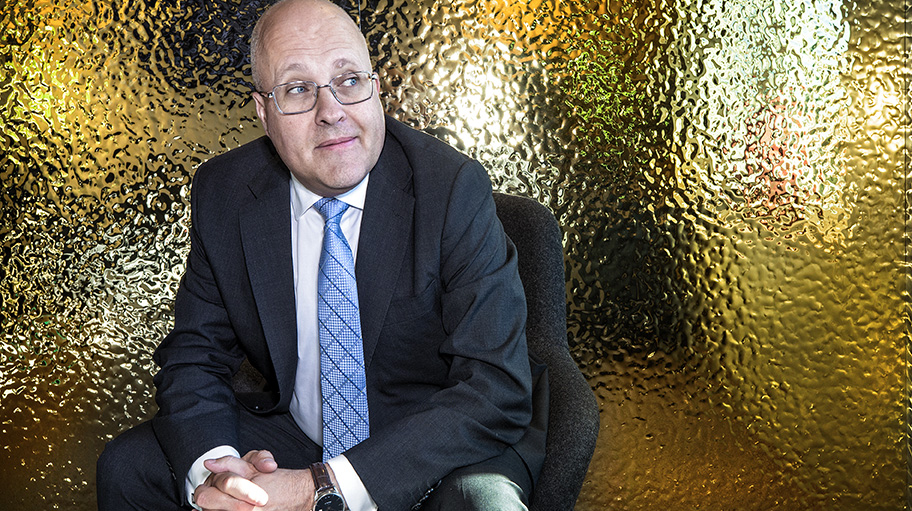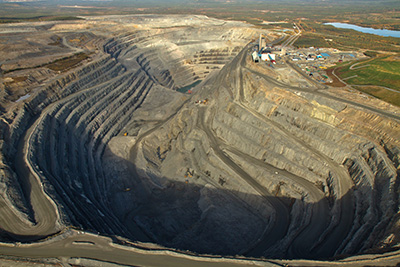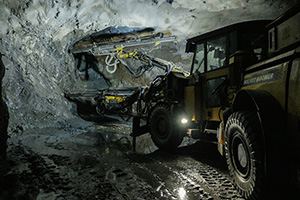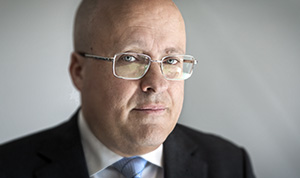Boliden CEO on the mining industry and the future
Metals are what make the world go round

Staffas, CEO of Swedish mining company Boliden, describes the prejudices against the Swedish mining sector as a long, hard uphill struggle to overcome.
“The fact is that we lead the world when it comes to the development of technology in the industry. We have made enormous progress over the past few decades when it comes to the environment in our mines and smelting works,” he says.
It is 30 years since Staffas graduated from KTH. Since then, he has held leading posts within the mining industry, a sector that contributes SEK 50 billion to Sweden’s annual GDP today.
“We are going to need more and more electrification if we as a society are to break our dependency on fossil fuels. Metals are absolutely vital for all renewable sources of energy. Wind and solar power, power grids and electric cars – they will all require even more metal in the future,” says Staffas.
He likes to point out to young people that ‘in addition to the copper in smartphone electronics, mobile surfing consumes loads of metal’.
“Personal surfing on the internet accounts for a remarkable 10 percent of total power consumption in Sweden. And this electricity has to be produced, ideally not via fossil fuels. You need copper for this. And electricity does not come out of the socket on the wall all by itself, as many people seem to want to believe.”
He adds:
“Many people in big cities close their eyes and seem to think copper grows on trees. And that the metro system runs on something vegetarian…”

Staffas also stresses that the Nordic countries have the advantage of being able to recycle copper to meet the vast majority of needs. While India and other developing nations have an urgent need for more metal production to enable them to produce enough renewable energy.
Can we run out of metal?
“There can be a metal shortage, but there are plenty of metals in the Earth’s crust. When the best finds have been exhausted, we will have to move to areas where it is a bit more expensive to mine. Metal prices will rise, but I don’t believe we will run out.”
“Having said that, we are moving towards a new situation in society: we are used to wars being fought over oil. In the future, wars can be started over the control of metal resources.”

Despite the fact that world market prices for metals have fallen during the ongoing Covid-19 pandemic, Boliden has not had to furlough anyone, not even for a single hour, Staffas explains.
He has been a critical voice in media debates where he views government support for furloughing employees has been ‘far too generous’.
“I think you should give money to people who are working, not to those not working. And Boliden’s balance sheet is built for lean times. We are in a strong position moving forward. Rather than closing operations, we are going to grow them.”
There are jobs in remote areas
Boliden currently has just over 6,000 employees in Sweden, Finland and Ireland, of whom 3,500 work in remote areas of, and small towns in, Sweden.

“If you are going to work for us, you should like living in a sparely populated area. Be prepared to work where the mines and smelting works are. There are job opportunities for both newly graduated engineers and non-academics,” says Staffas.
“As it is hard to persuade Stockholmers to move up north, many of our employees come from the universities in Luleå and Umeå. But we are not going to give up, we can probably persuade more KTH engineers to move up here.”
Where do you live yourself?
“Well yes granted, I live in Stockholm, so I had better be a bit careful here... But earlier in my career, I have lived in Sundsvall, Östersund and Skellefteå in the north of Sweden. And I have also lived and worked in the USA, France, Germany, Japan and Russia. You shouldn’t be afraid of relocating in order to be able to do the kind of job that interests you.”
Katarina Ahlfort
Photo: Håkan Lindgren
